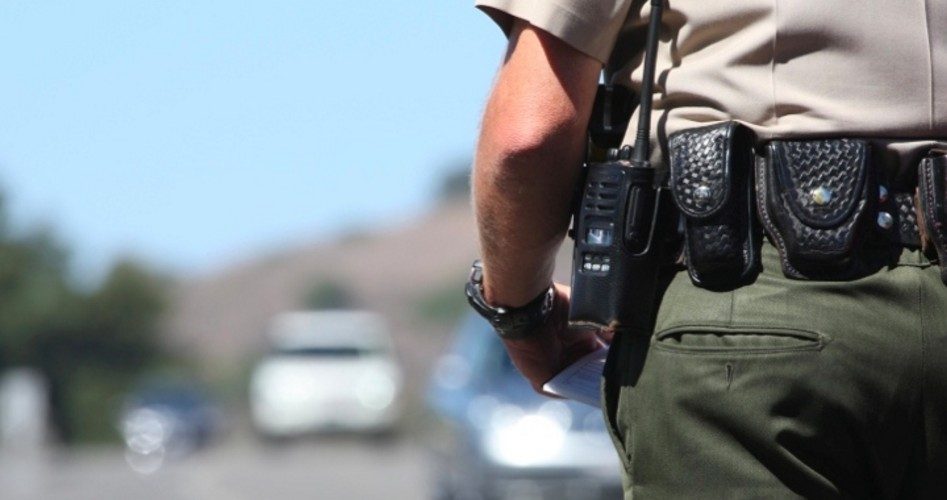
Motorists on America’s highways are being randomly stopped and asked for breath, blood, and saliva samples in a $7.9 million research project of the National Highway Traffic Safety Administration. In Fort Worth, Texas, citizen protests over the stops brought an apology from the city’s police chief over the participation of off-duty police officers in the project, the Fort Worth Star-Telegram reported.
“I agree with our citizens’ concerns, and I apologize for our participation,” Chief Jeffrey Halstead said. “Any future federal survey of this nature, which jeopardizes the public’s trust, will not be approved for the use of Fort Worth police.”
The roadside stops were made in Fort Worth on November 29 as part of a nationwide study called the National Roadside Survey of Alcohol and Drug Use by Drivers. Fort Worth police officers, who were off duty but in uniform, directed motorists into a parking area where people wearing lab coats asked for permission to take breath, blood and saliva samples, the Star-Telegram reported, noting that protocols provided by the federal safety agency require that the motorists be informed that their participation is voluntary and that they will be paid if they take part. According to the report of a similar study conducted the agency in 2007, involving some 9,000 drivers nationwide, participants were paid $10 to $50.
Some drivers objected to the reason for the stops and the “voluntary” nature of participation in a program to which people has also been called into question.
“I can see a [DWI] check or a random stop for insurance/registration,” said an email writer to the Star-Telegram. “But to stop drivers for no apparent reason other than to complete a survey seems excessive.” The American Civil Liberties Union called the searches “among the most invasive police can conduct.”
“We’re glad the police chief recognizes that these supposedly voluntary searches should never have happened,” Terri Burke, executive director of the ACLU of Texas, told Newsmax.com “People have a right to expect that the police won’t randomly stop people who aren’t suspected of any wrongdoing and demand blood or saliva samples.”
Fort Worth police are allowed to wear their uniforms on off-duty jobs in accordance with rules in the departments “general orders.” The rules are now under review, Chief Halstead said, “not only to ensure that our policies and procedures were followed, but also to ensure that any off-duty job is in the absolute best interest of our citizens.”
About 300 sites in 60 cities around the nation have been chosen for the survey next year. The National Highway Safety Administration, a division of the Department of Transportation, issued a statement explaining the purpose of the project.
“Each year, close to 10,000 people die in drunk driving crashes,” according to the statement. “Findings from this survey will be used to maximize the impact of policy development, education campaigns, law enforcement efforts and other activities aimed at reducing this problem.”
Motorists paying state and local taxes for law enforcement to combat drunk driving and other dangers on our highways might question the wisdom of spending $7.9 million more in federal dollars just to study the problem. And it could be argued that a warrantless stopping and detaining of motorists, however briefly, to ask for breath, blood and saliva samples comes under the category of “unreasonable searches and seizures” banned by the Fourth Amendment to the U.S. Constitution.
Frank Colosi, a Fort Worth lawyer who received calls about the stops, told Newsmax that even as a motorist is being told the tests are voluntary, “they’re testing the person’s breath at that moment. Attached to their clipboard or something is a tester,” he said, which is activated without the driver’s knowledge or consent.
“They tell the person, if they give the DNA, that it will go to a lab and that it’s completely anonymous, that it can’t be traced back,” Colosi said. “But where NHTSA gets itself into a jam is if the person is impaired.” If the police let someone go who is found to be under the influence of drugs or alcohol, they could face legal liability, especially if that motorist then injures of kills someone or does damage to property. But if they arrest the motorist, they invite a legal challenge over the voluntary nature of a search undertaken without probable cause for stopping the motorist in the first place.
But for the intimidation factor, it seems likely that only drivers confident they are not impaired would agree to be tested. That, Colosi said, raises question about the logic of the study.
“If only people who are going to volunteer for the survey are the people who are going to come back with clean results — and let’s face it, that’s what would happen — that would wreck the randomness of the survey,” Colosi said.
The Star-Telegram submitted questions to Fort Worth police, asking how officers conducted themselves, how they chose which cars to pull over and what happens if a driver ignores the officers. The paper also asked what the police would do during such a stop if drugs or open containers of alcohol were seen in the vehicle. A spokesman for the department told the paper the questions are “under review.”



